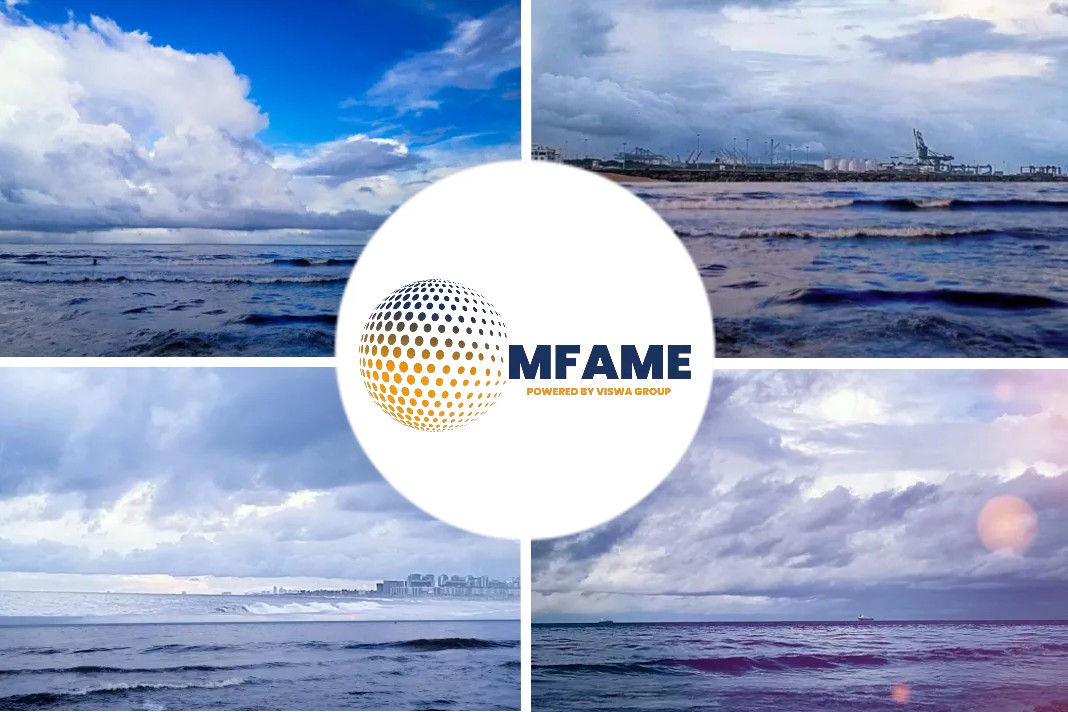- Shipowners’ interest in exhaust gas cleaning systems as an answer to the global sulphur cap is quickly vanishing due to the Coronavirus shockwave.
- Cost-cutting and the erosion of marine fuel oil premiums would add to the sulphur abatement technology redundant with a “flood of cancellations” are forecasted.
- The price gap plunged to $50 per tonne late last month, from about $400 per tonne at the beginning of this year reducing scrubber premium, extending the payback period.
- Decline in scrubber interest is temporary and will be set right when oil price rises and shipping activities recover after the coronavirus pandemic gets controlled.
- Many newbuildings these days are equipped with the so-called scrubber-ready design, to be easily retrofitted at the quay in future.
According to a senior Chinese shipbuilding executive, Exhaust gas cleaning systems or the scrubber as the technology to comply with the global sulphur cap is quickly disappearing, writes Cichen Shen for an article published in Lloyd’s List.
Temporary disruptions
Apart from the incoherent economic argument for exhaust gas scrubbers, delivery schedules for the devices have sustained further delays due to the coronavirus outbreak.
It is still believed that the reasons for the narrowing spread of the low oil price and muted fuel consumption are just temporary disruptions.
EGCS – vanishing interest?
According to a senior Chinese shipbuilding executive shipowners appetite for exhaust gas cleaning systems as an answer to the global sulphur cap is quickly vanishing.
Turning of the tide
China State Shipbuilding Corp deputy head Bao Weidong said the move triggered by a series of factors, including the coronavirus shockwave represents a turning of the tide from last year, when scrubber investors were flocking to yards for installations.
Mr Bao at the Capital Link International Shipping Forum (which became a digital conference this year due to the outbreak of coronavirus) said:
“Coming into 2020, I think the boom of scrubber installation and retrofitting will soon be over.”
Cancellations
In a recent report, Alphatanker has forecasted that cost-cutting and the erosion of marine fuel oil premiums would add to the sulphur abatement technology redundant with a “flood of cancellations”.
Mr Bao backed that view, saying the narrowing spread between 0.5% low-sulphur fuel oil and 3.5% high-sulphur fuel oil used by scrubber-fitted vessels has been the main reason behind owners’ second thoughts.
Price gap plunge
According to Alphatanker, the price gap had plunged to $50 per tonne late last month, from about $400 per tonne at the beginning of this year.
Payback time
- This has reduced the earnings premium for vessels with scrubbers,
- extended the payback time for the $2.5m average investment to four years rather than four months for the largest vessels that have retrofitted the technology.
Payback time will be even longer for smaller vessels, given the lower economies of scale.
“At the current price gap level, owners will be looking at their investment returns very carefully,” said.
Other factors dampening owner’s interest
The delivery delays and cost overruns were other factors dampening owners’ interest in the devices.
The situation has only been aggravated by the coronavirus fallout.
The epidemic
Mr Bao said scrubber installations at some major Chinese yards are now at least 60 days behind schedule, hit by epidemic-led labour shortages.
He added that the later the delivery, the less will be the investment return for shipowners.
Delay with dry-docking
Hing Chao, executive chairman of Hong Kong-based, family owned Wah Kwong, a fellow panellist had similar observations.
“In truth, given there has been significant delay with dry-docking, and so on, a lot of scrubber installations have been delayed as far as I know.”
Scrubber deliveries
Mr Chao said the market will continue to see deliveries of existing scrubber projects in 2020 and 2021.
“As to whether there will be more appetite beyond that, it depends on the outlook of the spread, but at this moment that is looking unlikely.”
LNG a good alternative
Mr Bao said that newbuildings fuelled by liquefied natural gas (LNG) had been quickly rising to about 400 units.
He added saying this approach provides a good alternative to scrubbers for shipping companies to comply with the sulphur rules.
Relief for scrubber investors
According to a Chinese leasing executive, the current thin spread between very low sulphur fuel oil and high-sulphur fuel oil was largely caused by the double whammy of the
- extremely low oil price and
- reduced fuel consumption in relation to muted shipping demand.
“I think the decline in scrubber interest is temporary. The oil price will rise and shipping activities will recover after the coronavirus pandemic gets controlled.”
Scrubber ready
The executive added that many newbuildings nowadays are equipped with the so-called scrubber-ready design.
This means they can be easily retrofitted at the quay in future.
Did you subscribe to our daily newsletter?
It’s Free! Click here to Subscribe!
Source: Lloyd’s list

















